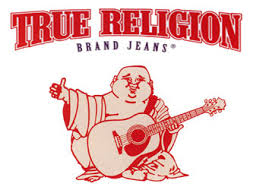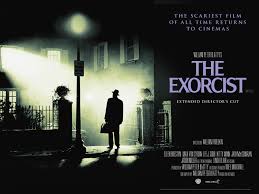
Religion without God?
The search for God, to say nothing of belonging to a religion, has its costs. It requires sincerity, perseverance and patience, with oneself and with God. And it requires a determination to go your own way, to ignore the common wisdom and to pray for God’s help – even when you doubt prayer’s efficacy.
“Faith is the possibility of re-interpreting what seemed so cut and dried from ‘the world’s’ point of view,” writes Tomas Halik, the Czech scholar I quote often in these blogs.
But if faith makes demands on us, atheism and agnosticism have their own burdens. Drew Christiansen recently wrote an article in America magazine entitled, “The Unbelievers, An Overview of ‘Religious Atheism.’”
“Religious atheism?” That’s a contradiction in terms, you might say. But it signifies the discontent some atheists and agnostics feel about the dry, cold reality of a godless world and their efforts to adopt the comforting trappings of religion.
Some atheists and agnostics, it seems, long for the art, architecture, community and festivity they see in religion but resist the “transcendent” impulse. They seek an alternate way to find meaning. Christiansen quotes a Canadian philosopher who has written that “Happiness is about the ability to reflect on one’s life and find it worthwhile.”
For some, says Christiansen, poetry has become “a surrogate for religion.” And then, of course, there’s civil religion, touting things like loyalty, patriotism and militarism, providing “the social cohesion religion had previously given.” And for some, sports and entertainment have become religions.
As for the idea of valuing the trappings of religion without religion itself – without God, in other words – many religious people are just as “guilty” as atheists and agnostics. In Catholicism, I think of some clergy, especially some priests and bishops, who appear to worship the liturgical and non-liturgical garments that distinguish them from others, the praise and admiration they see as their due and their sense of righteousness. Some of them, apparently, have never internalized the theology they spent years studying.
Some TV Christian evangelists are other examples, and Judaism, Islam and Buddhism are not immune from stressing appearance over “substance,” by which I mean a sincere faith that shows in how you live.
But just as only a few scientists err by drawing unwarranted conclusions, superficial religious people are, I believe, in the minority. It’s hard to be shallow about something that has to do with your life, not just your career.
Still, a genuine obstacle to accepting religion for many in today’s world is the perceived lack of freedom joining a religion represents. I think that has been a particular problem for my faith, Catholicism.
“We must acknowledge that a deficit of freedom in Catholic culture is an obstacle to modern men and women hearing the gospel,” writes Christiansen. It also results in “avoidance, resentment and cognitive dissonance” in individuals and in harmful divisions within the church. “Our capacities to live the Gospel fully and proclaim it boldly are stunted by insufficient respect for mature religious freedom within the church,” he writes.
Though I share this vague feeling of coercion about membership in organized religion, I wonder if it is real or whether it is merely a widely accepted stereotype into which I’ve been drawn. I recall that after I left the priesthood and became a journalist – and afterward in my brief career as a public health bureaucrat – I was surprised by the authoritarianism of my “superiors.” The bishops and pastors under whom I served were much less authoritarian, and I believe that’s even more the case today.
Do we modern people accept a “lack of freedom” in business, sports, and other organizations but not in religion? Religions are, after all, human organizations apart from any claims made to be divine as well. As with any human organization, there are rules, guides, principles and people on an organizational chart. If we choose to accept the organization, acceptance of all that is implied.
I could never be a monk, “confined” to a monastery and under the authority of an abbot or other “superior,” partly because of the perceived lack of freedom. But I recall once discussing this with a monk, who said he joined a monastery to focus on God. He was happy to leave the organization of the monastery, and even details more directly relating to his life, to the abbot.
And if we mean by lack of freedom the necessity to accept doctrine, is that a real obstacle? As I’ve written in these blogs before, you have to allow time for some doctrines to “grow on you.” And if they don’t, they will simply be irrelevant for you. A church is a community of faith that, among other things, professes similar beliefs, but there is no test. Though there is no need to deny them – recognizing their importance to other members of the faith community – some Catholic doctrines are simply irrelevant to many of us.
Some would call this being a “cafeteria Catholic,” embracing only the doctrines with which you agree. But practically, all Catholics – including the most conservative – do this, and with reason.
Many of the atheist or agnostic authors quoted in Christiansen’s article acknowledge the incompleteness of a life without religion. Quoting philosopher Jurgen Habermas, Christiansen writes that religion provides “an awareness of what is lacking or absent in our lives.” And some among these philosophers acknowledge there’s no substitute for the real thing.
One of my favorite gospel stories is less known because of the popularity of the other famous father-and-sons story, that of the prodigal son. But the story I have in mind is the one about the father who asked each of two sons to go to work in his vineyard. The first said he wouldn’t go, but later went. The second said he would, but didn’t.
Which, asked Jesus of his listeners, did what his father asked? The answer is obvious.
Many, including “religious” people more interested in religion’s trappings than loving God and neighbor, are like the second son. People sincerely searching for God, on the other hand, may take time – sometimes a lifetime – to say “yes.” Jesus explains to his listeners that these “resisters” are represented by the “prostitutes and tax collectors” who enter the kingdom of God before all those who say “yes” but don’t mean it.




